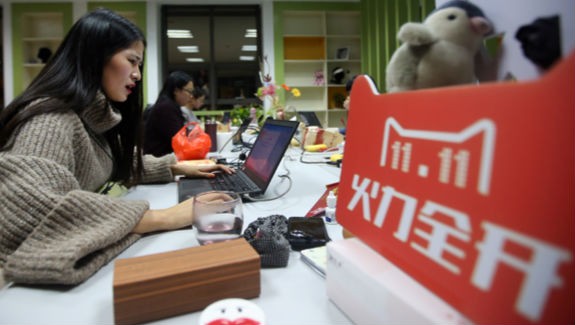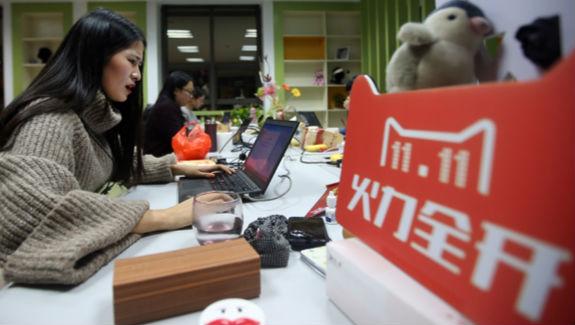
BEIJING -- E-commerce giant Alibaba Group Holding Ltd made considerable progress in stamping out counterfeit goods on its online shopping portal Taobao in 2017, as consumer requests for return of goods fell 29 percent from the same period in 2016, a new report said.
Out of every 10,000 requests made for return of products in the previous year, 1.49 were initiated as consumers suspected they were fake, compared with 2.1 in 2016, according to the 2017 Alibaba Intellectual Property Protection Annual Report.
The report is the first of its kind and was released after Jack Ma, the founder of Alibaba, proposed "coping with knockoffs in the same way as we cope with drunk driving" early last year. The report said that 97 percent of the products that Alibaba took the initiative to remove from the online platform on suspicion of intellectual property infringement were removed forthwith even before any transaction took place.
Altogether, 240,000 Taobao stores were closed last year on suspicion of selling fake commodities, compared with 180,000 in 2016, said the report published on Wednesday.
The desirable results were largely a result of the group's big data technologies, which scanned nearly 2 billion commodities on the platform on a daily basis to spot questionable ones, as well as 600 million pictures that online dealers published together with the products. The technologies also identified sellers of fake goods who used legitimate descriptions of goods to dodge checks, said Zheng Junfang, Alibaba's chief platform governance officer.
"We also have the biological real person authentication technology under which prospective Taobao vendors need to ensure that their identity is real and reliable," Zheng said.
She said a man surnamed Zhou, whose store on Taobao was closed early last year for selling knockoffs, attempted to apply to open another store eight times within the year, each time with a doctored ID card, but none succeeded.
During 2017, Alibaba tipped off the police about 1,910 cases of selling or production of knockoffs, which resulted in police officers' offline actions that caught 1,606 suspects, according to the report. The amount involved in the cases totaled roughly 430 million yuan ($66 million).
Chen Jingkai, deputy director of intellectual property cases with the Zhejiang provincial police, said some knockoff sellers have turned to other platforms, such as JD, and social networks, such as WeChat, as well as online forums.
"Tencent, which operates WeChat, said the WeChat Moments feed is users' private domain so it is hard for it to cooperate with police for investigation of cases involving suspicious knockoff sales," Chen said.
"Moreover, it's harder for police to investigate such cases as those who sell fake products through the Moments feed are usually small distributors. They probably don't have goods in stock and they may explain the transaction records are to transfer money to friends rather than for business," he said.
JD said in a written statement to China Daily that it has been taking a zero-tolerance attitude toward fake products sold on its online shopping platform and has taken actions in a wide range of fields to ensure that consumers can buy high-quality and authentic goods.
"As for the marketplace business model, JD enables well-established, reliable third-party sellers to sell products, after a thorough review process," it said. (Source: China Daily )




 A single purchase
A single purchase









